Imagining Intrigue: The Why and Wherefore of Pithy Prose
Most classic literature revolves around elements such as irony, symbolism, allusion, allegory, personification, or metaphor developed over an extended sequence of pages. Some of the lengthier examples being: War and Peace by Leo Tolstoy requiring 1,225 pages to beset a universal voice, The Life and Adventures of Nicholas Nickleby by Charles Dickens which prolongs the ilk over 952 pages, The Stand by Stephen King who ingeniously weaves a 1,153 page novel from a preceding publication. The aim for this examination of curt literature will be to take a more counterintuitive approach to typical viewpoints by covering narratives in a more cursory manner. The expectation being to delve swiftly and decisively into the overbearing themes within the plot and characterization. There are three works that are appropriate for this consideration.
The first is The Cask of Amontillado by Edgar Allen Poe which was published in the November 1846 issue of Godey’s Lady’s Book. A stint of brashness between the two main characters leaves one entombed while the other recoils emphatically and triumphantly over an earlier spiteful exchange. Montresor quips, “The thousand injuries of Fortunato I had borne as I best could, but when he ventured upon insult, I vowed revenge.” A provocative gesture between two acquaintances is coerced by means of alcohol and ends in a vindictive act of immurement. The title of the Poe narrative serves a dual purpose by indicating the means of entrapment as well as the victim’s improvised sarcophagus.
Despite the dejected air of the Gothic-addled plot, this emblematic composition has remained in print uninterrupted since the mid-nineteenth century, undoubtedly owing to the impressive category of publishers that marked its release. The first successful women’s magazine founded in 1830 by Louis Antoine Godey with a sizable southern United States circulation, Godey’s Lady’s Book offered literary pieces and articles on current events and popular culture. Under the 40-year editorial helm of Sarah Josepha Hale, the magazine swelled to over 150,000 subscribers setting a lasting impact on American culture by nurturing a collective historical consciousness. As an editor in Boston, Hale published a collection of poetry that included the nursery rhyme “Mary Had a Little Lamb” which has persisted ever since. The publication made a lasting literary and social contribution in the US, allowing women to share their creativity and discuss issues that mattered exclusively to them such as traditional holiday recipes; all the while, reporting on events as they transpired in London. A popular feature of the magazine included columns devoted to garment design, sheet music, and short stories by Edgar Allan Poe, Nathaniel Hawthorne, Washington Irving, and Oliver Wendell Holmes, to name but a few. Coincidentally, Holmes was an American jurist known for his concise opinions in matters relating to Supreme Court hearings. He is best remembered for being an influential judge and was honored equally by Great Britain and the US. Altogether, these efforts shaped American culture in ways still evident today—insofar as reaching a vital audience by every means is concerned.
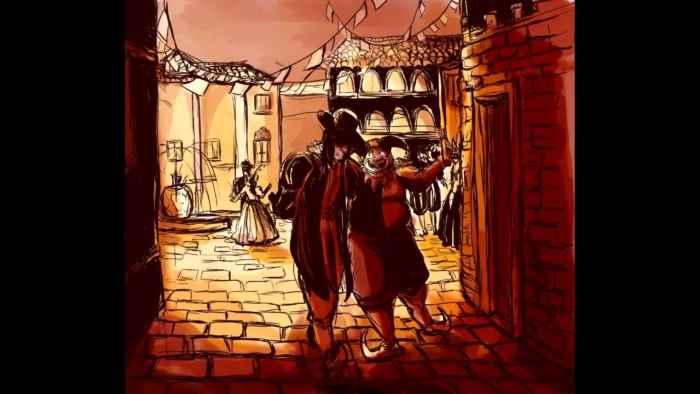
The next is The Lottery by Shirley Jackson that debuted in the June 1948 issue of The New Yorker. The revelation of the peculiar practice of public execution among the residents of an otherwise prim and bucolic town stands to question an odd, yet historically vetted, form of human behavior. In hindsight, this town’s diversionary, delusionary, or customary act can be regarded as a gambling predilection gone awry, if only through a caricature of the title alone. However, it speaks to a broader social implication of the town’s predicament, as highlighted by John Donne’s Meditation 17 in Devotions upon Emergent Occasions:
No man is an island,
Entire of itself,
Every man is a piece of the continent,
A part of the main.
If a clod be washed away by the sea,
Europe is the less.
As well as if a promontory were.
As well as if a manor of thy friend’s
Or of thine own were:
Any man’s death diminishes me,
Because I am involved in mankind,
And therefore never send to know for whom the bell tolls;
It tolls for thee.
The literary works of another prominent author advances this point within the pantheon of American literature. Nobel laureate Ernest Hemingway is considered the preeminent writer of short story. One classic novel of merit serves to reorient the controversial aspect of The Lottery. In the contemplative and metaphysical Death in the Afternoon written in 1932, Hemingway succeeds in conveying a human curiosity, on par with Jackson, differing only by relating the repugnant spectator sport of bullfighting wherein the animal meets a tragic end, or overpowers the matador and lives to fight again, merely in service to the onlookers. At the conclusion of the sport, neither survivor walks away with anything of value, apart from injury or worst, only to ritualistically embark on another encounter ad nauseam. Hemingway produced countless other abridged novels of which, ironically or appropriately enough, only the titles Winner Take Nothing and For Whom the Bell Tolls bear any burden on the running theme of this perspective.
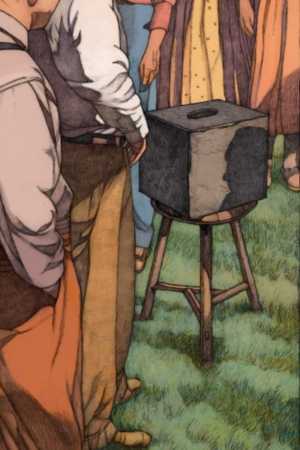
Lastly, The Most Dangerous Game by Richard Connell was published in the January 1924 issue of Collier’s. An unanticipated island incursion is the catalyst to a marooned New York socialite being thrust into a race for survival. The dilemma is conjured by an aristocratic game hunter with a predisposition for human prey. The aristocrat meets his untimely demise not by fallibility nor feebleness, rather by the innate human resourcefulness of the hunted American castaway. General Zaroff remarks, “Instinct is no match for reason,” which ironically spells his ultimate undoing as the haphazard rivalry unfolds and ceases abruptly when the unsuspecting guest prevails. This stands as a blasé indication of the consequences to living vicariously and precariously on both the part of the New York socialite and the Russian aristocrat. Furthermore, General Zaroff muddles to the target before him, “I refuse to believe that so modern and civilized a young man as you seem to be harbors romantic ideas about the value of human life.” Seldom does being stranded on an unforgiving island not jar an individual’s composure; for the exception, words such as these will undoubtedly succeed in light of the viciousness to follow. After sordidly defeating the General, his servant Ivan, and a pack of ravenous dogs, Rainsford takes his prize of sleeping in the General’s own bed, as emboldened by Zaroff’s premonition, “This is a most restful spot,” uttered at the opening of the novel. A contradictory, deceptive, prophetic; if not, allegorical statement about the island’s secret and the unpredictable end to the inhabitants.
The NBC Blue Network began a radio broadcast of Collier’s features in an attempt to resolve a longstanding publishing rivalry against The Saturday Evening Post. The Collier’s Hour aired from 1927 through 1932 as radio’s first anthology of serialized articles and stories, eventually adding music, sports and news into the hour long time slot. The founder, Peter F. Collier, immigrated to the United States from Ireland at the age of 17. Collier began his publishing career in books; then, independently in the magazine market. His book venture sold in excess of 30 million copies from 1900 to 1910 while his magazine stake surpassed 250,000 in circulation due in part to a partnership that fortuitously incorporated photojournalism to the already seasoned elements of short story and radio production.

In conjunction with the conflict in question, each narrative incorporates a lighter side for the perpetrators within the plot, as well as the audience in general. Although Poe devotes much of the prose to the dastardly depiction of Montresor, a more exuberant alternative is presented in the carnivalesque atmosphere that occurs simultaneous to his impending attack. Even Jackson paints her narrative with a seemingly blissful, uneventful, and carefree day of sunshine just prior to the atrocious and ominous act forthcoming. Though seemingly out of place thematically, Jackson is not unique in using tranquility to exacerbate the climactic turmoil. In Metamorphosis by Franz Kafka, the son Gregor is reduced to a tormented invalid by an inexplicable ailment as the family struggles and is absorbed by the tragedy that befalls them. When Gregor succumbs to the ordeal, the family conveniently recover enough to venture into the countryside for a day of serene nature and absolute solace, presumably oblivious to the missing family member. Aesthetically, Jackson situates ‘the calm before the storm’ in the beginning while Kafka belabors the effect to the end. More so, the oasis spectacle set forth by Connell occurs on a pristine, tropical island that could have better detracted the protaganist and antagonist from the imminent decision to perpetrate a mortal scuffle.
The meaning of life is that it stops—Franz Kafka
The insidiousness that transpires in all three succinct narratives is quelled by the more coaxing social, natural, and contextual elements that counterbalance the theme as it meanders through the minutiae of dialogue. In a more condensed manner, each storyline prods surreptitiously between cautionary title, discretionary verse and, above all, beleaguering conduct. Whereas the underlying nay periphery themes of religion, politics, morality, civilization, or lifestyle remain prevalent and foremost—the less protruding notions of drinking, gambling, and conniving indistinctly have a place among the texts. To a certain extent, the dramatic overture of the script flows into a myriad of possibility for further entanglement or recourse that would otherwise have required hundreds of pages. The fact that the texts have endured as classics, regardless of tone, attest to this distinction. Nonetheless, the paradigm that pertains to the literary dilemma raised heretofore is best asserted by Shoshana Felman: an American literary critic, Emory University professor emerita, and theorist. In Juridical Unconscious, Felman elegantly applies the notion of literature as a pragmatic substitute to social justice.
What indeed is literary justice, as opposed to legal justice? How does literature do justice to the trauma in a way the law does not, or cannot? Literature is a dimension of concrete embodiment and language of infinitude that, in contrast to the language of the law, encapsulates not closure but precisely what in a given legal case refuses to be closed and cannot be closed. It is to this refusal of the trauma to be closed that literature does justice.
The Tragedy of Hamlet, Prince of Denmark (Act III Scene I)
The most influential play on the topic of injustice and revenge is Hamlet. All the layers upon layers of misdeed and mischievousness make it one of the longest stories to convey: requiring over 4,000 lines, as many as 29,000 words, and well into 4 hours to perform in its entirety. By comparison, a 10-hour adaptation of War and Peace was broadcast over BBC Radio in 1997; beginning early one morning and ending much later that night, stopping momentarily and exclusively for news reporting. With this in mind, it is no wonder that two ancient texts written by Greek poet, Homer, have remained largely recognized as longstanding classics, namely: Iliad and Odyssey. The latter boasts over 12,000 lines of poetic verse and is believed to have been written near the 8th century BC. The former spans over 15,000 lines to relate a more pronounced narrative of the events leading to and following the Trojan War. Both are regarded as pivotal to Greek and Western literature and while they speak to the breath of the theme in question, other Greek works devote more attention to the nature and essence of existence. In The Bacchae by Athenian playwright Euripides, the play focuses on the two sides of human nature: the rational side and the instinctual side. The performance conveys the near idyllic presence of mind achieved from the reconciliatory bond between man and his enemy, while not entirely precluding the menacing force that can prevail otherwise. By way of personification, both the chorus and the divine presence meld into a distinctive character within the play. This is the distinctive facet that marks The Bacchae as an exceptional ancient or modern tragedy. Two other Athenian playwrights, Aeschylus and Sophocles, are revered for artistically composing rhetorical elements within the Greek play in order to allow audiences to reflect on divine as well as dismal matters in anticipation of bestowing a cathartic experience, to no less resonant effect.
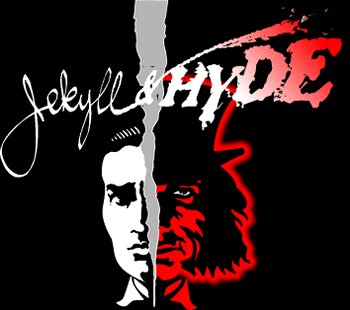
I learned to recognise the thorough and primitive duality of man; I saw that, of the two natures that contended in the field of my consciousness, even if I could rightly be said to be either, it was only because I was radically both.
—Robert Louis Stevenson (1886)
It may, as many great novels have shown, take hundreds of pages to entice a reader, but the other condensed category of literature reveals how the intent can be equally and effectively accomplished through a trifle of words, a convoluted agenda, and a smattering of literary devices. Of course, each author contributes their own specific brand of composition which may or may not elevate the final publication. The historical context or the emotional complexities that espouse the concept behind the narrative contribute to the substance and robustness of the story. In so doing, each novella portrays a tinge of admonition toward the absurdity and obscurity of certain points, people, or places. In the end, this microcosm of storytelling laconically embeds a unique strand upon the peril that awaits the readership at large—along the pendulum of time and beyond the margin of imagination.
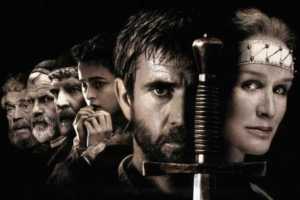
What do you think? Leave a comment.

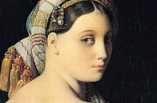






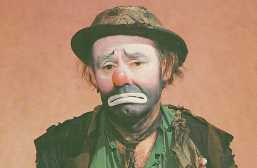

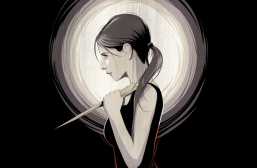
The Lottery was taught in every school in the nation when I was young enough to attend high school. I wonder if it still is.
I remember well the feeling I had the first time I read it and confronted the surprising ending. In this day of The Hunger Games (which surely must owe its very essence to this story), it is not as shocking an ending, I suppose, but it is still a powerful statement about the human mind.
I often get asked why I like short stories. This is why.
The Lottery is one of the first short stories I ever read, and its one that had the longest and strongest impact on me. You know its a bloody good story if it leaves you reeling, years after you first read it.
I think the story, especially at the time of publication, achieved what it set out to do – of course the idea is a bit passe by now, but at the time it must have been something new, fresh and shocking, if public reaction to it is anything to go by.
The thing that I found most interesting, most chilling, was the way the people kept insisting that they should “get on with it” and “wrap it up”. The cold way they said these things suggested that they maybe saw it as an unavoidable thing, and an interruption to their day, but one can’t help but wonder if they also needed to partake in their part of the “prize”. To get out whatever demons they harbor.
Chilling, and very well written.
It plays cleverly on what we know as people and your own expectations, and only drops minor hints along the way that click into place later. As a writer and reader I can truly admire this for the very carefully and well woven story that this is.
The Most Dangerous Game could have been great. I guess I’ve just seen and read too many things with the same premise, but a better and more suspenseful execution. I will agree that this book was way ahead of its time, but it just didn’t do it for me. Too predictable and too short.
This is the most unusual thriller I’ve ever read.
Don’t ask me why, but since I read Connell’s story in the 9th grade, I’ve been deeply affected by it. Something about man being portrayed as the hunted rather than the hunter is terrifying, and not in the done-to-death slasher movie type of way that half of us love nostalgically and the other half is just plain sick of.
This is clearly a short-story that has fallen out of the mainstream as of late and from my understanding it is not on many ‘required reading’ lists for students anymore as it used to be. I spoke to two different English teachers that I know, and both had not just never read it, but also never heard of it. I guess stranger things can happen.
I absolutely LOVED this book. I actually pretty much loved every book we read freshmen year of high school, looking back on it.
Maybe it’s perspective, since the basics of this story were already known to me, but I found this a bit simplistic.
Read to us by my 6th grade elementary teacher. Definitely one of the most memorable and best short stories.
That was cool! A really suspenseful short story.
The Cask of Amontillado is a masterpiece.
I read this just after reading The Serpent of Venice… and completely missed the terror of the story as I was imagining Pocket, the Fool, with his filthy jokes.
I love this book, as I always do with Poe And I have the same complaint I always have with Poe, in that I want so much more!
The theme of this book or short story is to never be greedy because the protagonist locks the antagonist in the wine cellars for revenge on him.
This is outclasss.
The present day parallels and implications of The Lottery are astounding and thought-provoking.
What I like about Shirly Jackson’s writing is that it doesn’t make the people’s actions totally alien, rather, it’s something you could imagine yourself born into.
Edgar Allan Poe is so messed up, and I love it!
Classic Poe, never ceases to amaze!
‘In pace requiescat!’
Damn, I got actual chills reading that line. Okay, maybe that’s due to my unhealthy amount of time playing the second Assassin’s Creed games, which takes place in Italy, but so much of this story reminded me of those games.
Most dangerous game is possibly one of the best short stories I have ever read!
I love it. It was full of suspense, thrill, adventure, fear, everything that a thriller book should have.
I loved the way that Shirley Jackson showed us, through the behaviour of one of our characters, just how bad the end result was going to be.
The Lottery is not as shocking as some modern day literary offerings, but it packs a lot of punch for such a short story.
ALWAYS WORTH REREADING the referenced novels.
The Lottery is a masterfully crafted short story.
A good essay. I remember reading The Lottery in high school and enjoying it, Kafka’s writings I never really enjoyed. But your essay helps to identify a few major points that transcend just one novel or one author and I like that.
The Lottery was taught in every school in the nation when I was young enough to attend high school. I wonder if it still is.
Thanks for an interesting read, I enjoyed the discussion!
“The meaning of life is that it stops”—Franz Kafka
(And except the creators of x dimensions (thoughts), everbody dies with that ‘stop’… Creative people made them immortal- immortal through the tiny window of meta- reality of x dimension, while they live a glimpse phenomenon of mental consciousness and material senescence.)
Also, this town is known found in the winter, while there are snowboarding slopes in its vicinity. The town is located 170 kilometers via Prague ( 1 hour fifty-five moments drive ), 46 kilometer south of Karlovy Change (55 mins travel ) and 32 km coming from the city of Cheb. Near Mariánské Lázně, a 15-minute drive away, you can find massages towns such as Lazne Kinžvrat, Františkovy Lázně, Konstantinovy Lázně.
Minor issue: technically, the theatrical works of Shakespeare are not prose; they are poetry. They use blank verse iambic pentameter.